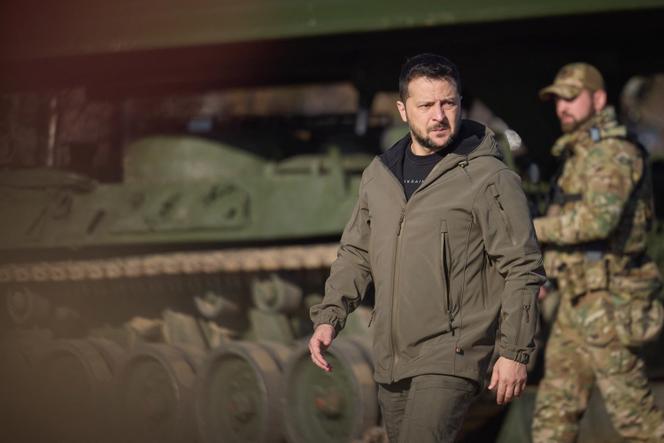


Rumors of an imminent visit by Ukrainian president Volodymyr Zelensky had spread like wildfire through the Israeli media. On Saturday, November 4, citing an anonymous Ukrainian diplomat, the Times of Israel eventually announced that the trip was in doubt due to a leak revealing the move to a national news channel. According to the diplomat, the Ukrainian president "wanted the trip to be public when he stepped on Israeli soil." "He's very disappointed," he added.
Ukrainian authorities have not commented on any potential reversal of their decision, just as they had not announced anything in advance. It is difficult to know whether the visit will be maintained, postponed or canceled. Nevertheless, this leak to the press cannot be considered anything more than the slightest sign of change since Ukraine positioned itself in support of the Jewish state and Moscow made a hostile turn towards Israel at the start of the conflict with Hamas a month earlier. Last week, the Israeli ambassador to Ukraine, Michael Brodsky, told local media that he supported the idea of a visit by the president of one of the most pro-Israeli countries in Europe, in his words.
In the immediate aftermath of the Hamas massacres on October 7, the Ukrainian president was one of the first leaders to offer to visit the site in solidarity with Israel. This initial request was rejected by the authorities through the media. For Kyiv-based analyst Iliya Kusa, this very public support can be explained by Ukraine's ambition to "capitalize" on the deterioration in relations between Russia and Israel. "As Russia has manifested an apparently pro-Palestine stance [since the start of the war], many hoped that this would lead to a breakdown in the usual relations between the two countries and that this would help Ukraine to sway Israel to our side," he explained.
Kyiv has been trying to rally Israel to its cause since the beginning of the invasion in the hope of receiving military support, but without any real success. Unlike many Western leaders, the Israeli Prime Minister has never visited Ukraine since the Russian invasion began on February 24, 2022, not least because of Israel's strategic dependence on Russia. Moscow, which has had a contingent in Syria since 2015, allows the Israeli air force to carry out precise strikes against Iranian interests in the country.
But this new pro-Israeli stance, inevitable given Kyiv's relationship with the United States, is not without risk. "Ukraine is torn between the need to keep Israel as a valuable partner and the interest of improving relations with non-Western countries, especially with the Middle East, because we want the Middle East to remain neutral, at least in the war between Ukraine and Russia," explained Kusa. Since the start of the conflict between Israel and Hamas, certain countries occupying strategic mediation roles between Ukraine and Russia have accused the West of using a double standard, between general condemnation of Russian war crimes and silence surrounding the civilian victims in Gaza.
